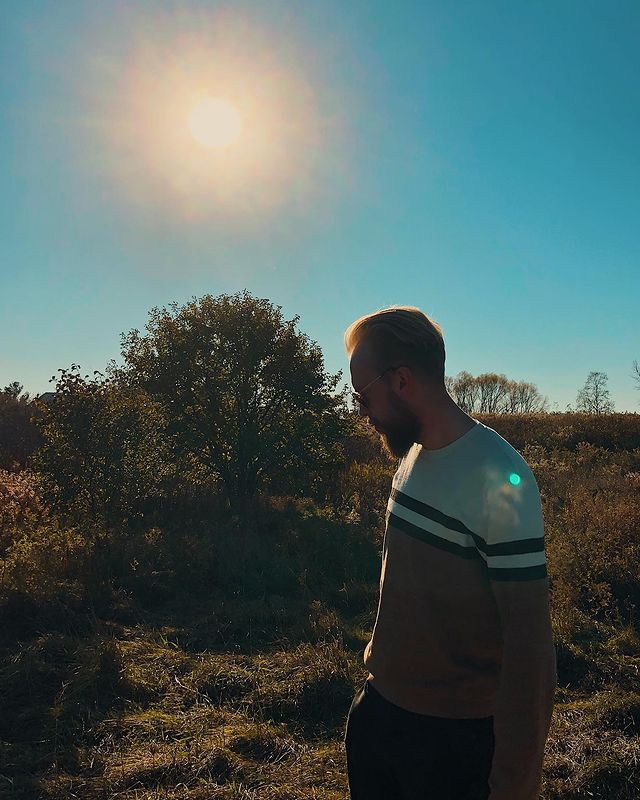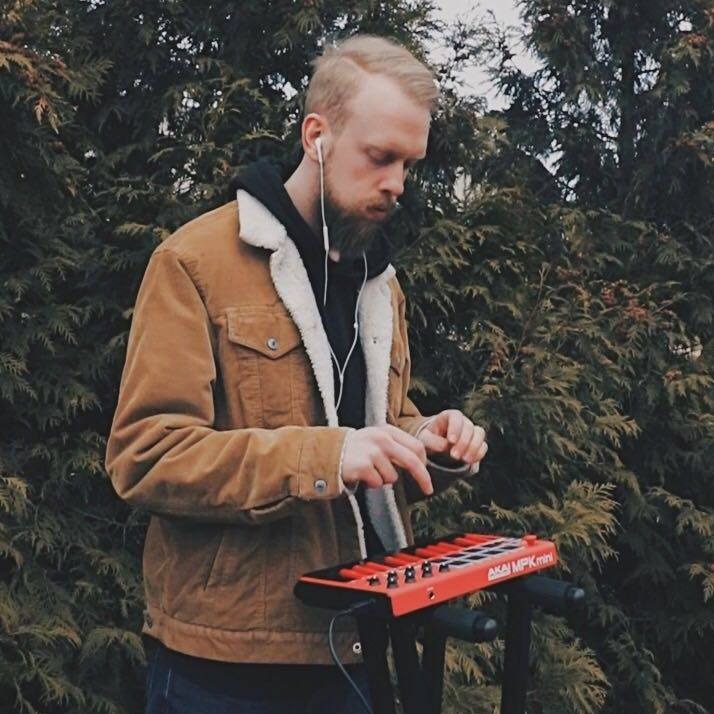An investigation into How COVID19 affected the life of an online music producer. By James Larkin Tim or Omito Beats, born in Canada has been making music from a young age, and has acquired over 100,000 YouTube subscribers, worked with Nike, and has been selling music online for over 10 years to independent artists all over the globe. Using platforms such as YouTube, Instagram, and Twitter, Omito has been continued to grow his brand and over the years has developed a clear style of production which made him stand out from the other online music producers. We spoke on how the lockdowns changed the dynamic of his workflow, and how he had to adjust with the world as COVID-19 took over.

As a self-employed music producer, it can be hard to balance both life and music, so how did Omito do just that? Those who work a nine-five job are used to this format of working already, if you finish up at the office, you close your computer and head home in your car, you’re complete for the day. You don’t have to think about your work until the next morning, but the life of a music producer it’s vastly different, you’re a one-man band. You run all your social media channels, reply to emails, update your website with new content, all while trying to make music, so I was extremely interested in what the 25-year-old had to say on how he kept work and life separate, especially during the harsh restrictions of lockdown where you couldn’t fully take yourself away from your work. To add to this, as I used to produce music myself, I am more than aware of the difficulties of stopping, knowing when enough is enough, with being self-employed you are so reliant on yourself to keep working as you are the one that is doing the work to pay the bills. It creates mountains of pressure knowing it is all on you on how much of an income you are going to make every month.
“For me, it wasn’t too bad as I am so use to doing this as my full-time job. I’ve already tried to keep to a nine-five Monday to Friday schedule as much as possible, I know when to take breaks, when to step away’’.
Omito also went on to explain how moving from his parents’ house was the biggest positive in keeping to a schedule.
“I remember there was a while when I was at my parents’ house, I would do everything in my one room, I would sleep there, chill there, work and make beats there, I would do everything in this one room, I got into such a bad routine of not even setting an alarm anymore because why? I’m already in my ‘office’ anyway”.
Purchasing a house for himself is really what helped Omito get into a routine.
”I make music in the spare bedroom at my house, so at the end of the day I can just close the door and go and relax downstairs. However, I can definitely see how people who were forced to work from home, even those not making music would have struggled keeping to a tight schedule. When you wake up and you are already where you need to be, it must be tough. For me it’s just simply being in another room as it completely takes you away from your work”.
It seems like such a simple concept, but being able to step out of a room and lock the door behind you is just a great way to keep all your work in one place, not in the room you also do everything else in.
Musicians thrive off being around other musicians, it creates an energy, there’s a buzz like nothing else when a group of people come together and produce music, but with lockdowns this wasn’t possible. Especially in America, producers will fly round the country just to get into the studio with certain artists. Tim explained how often he gets into the studio with other artists.
‘’All the time it’s me by myself in the studio room, especially as, me being from Canada, I’m not far from Toronto, which is becoming like the LA of Canada, that’s where all the artists are, but for me I’m about a two-hour drive away in a smaller city with not a lot of artists here. My own personal workflow is I like to get into the zone by myself, so really since day one is has been always me making the beats and uploading them to my website, which allows any artists all over the world to find my stuff and work with me.’’
Being an online music producer is, heavily reliant on artists purchasing beats from their website, I was interested to see if the pandemic caused any knock-on effects to this, in a negative or positive light.
‘’I remember at the beginning of it all, around March break last year, that’s when everything started to get crazy. People had their March break, and it kept going on and on and people didn’t know when they were going to go back. I remember I had some work with some people online, they were going to pay me for some custom production, I had clients lined up and when it came to paying, people started to become indifferent, saying they weren’t sure when they were going to get back to work, or the local studio has shut down, so at the beginning I was a bit like, is this going to be the end you know? If people don’t have a place to record to because it had shut down or they are out of a job and don’t have the extra income to spend on music. I know my job isn’t essential and a lot of people they pay for beats because it’s a passion or a hobby to them. But after that, during the pandemic and even to this day I have personally noticed an increase in sales, this year has been my best so far. I think a lot of people created setups from home, and of course have had the time to record new music, so definitely seen my sales just get better and better.
Being an online music producer means you are just one of the thousands and thousands online. There are so many tutorials on YouTube that you can follow now on how to produce music, so anyone with the time and energy can learn to produce music to a good standard, create their own website and sell their beats. But what did Tim do to be different? And especially with how COVID19 effected so many people’s lives, how did he still bring in consumers in a time of mystery and doubt?
“The main goal of what we do is try and make sales, right? We are musicians, but also, were in the music business, and if you want this to be your full-time job you need to make sales to pay the bills. During the time when I was having people say that couldn’t afford beats I didn’t want to come across as ‘salesy’ as I knew they weren’t in a position to pay for my service. So instead, I focused on entertainment. I figured that a lot of people would be out of jobs, they would be sitting at home on their phones endlessly scrolling, so instead of just making beats and uploading them to my website, I would create content around every beat. I would record videos of myself making the beat or playing an instrument live. Even to this day I am doing this, showing the creative process behind what I’m doing. So, my thoughts behind this were, if people can’t buy the beats now, if I can keep them engaged in what I’m doing and keep them entertained, when it comes to a time where they can afford to purchase, they will remember my name. So, my goal when doing these behind-the-scenes videos was never to get people to purchase straight away, it was just to keep my name familiar to them and keep me relevant.
Omito explained how he wants to move forward developing his brand and if that means linking up with artists in the future.
‘’I do want to bring artists into the studio with me, I know it’s hard with me living in an isolated small city, but it’s something I want to achieve. I’ve always been introverted, I have never actually recorded with someone else in person, but I could see myself doing it, I’ve made it this far without meeting someone in person, but that is something that can change.’’

Musicians are constantly changing their sound and genre, and Omito is no different. When he first started making beats, he made darker, more underground style of music, whereas if you listen to the music he is creating now, it’s gravitated towards a more pop sound. I was fascinated on whether this change was to reach a different market or because he wanted to create a niche for himself. ‘’I don’t really make the aggressive stuff anymore, anything that’s dark I stay away from. I tend to make more gospel or pop rap, geared towards artists such as Chance the Rapper and Justin Bieber. I got bored of making it, I found myself listening to music that I wasn’t producing, I remember making the switch and said to myself why am I trying to be someone that am not?
COVID19 has been more than a defining factor in our lives for the past couple of years, and to jump into the life of a self-made music producer is a great insight into what life is like for someone who has always worked from home, and how the pandemic caused an effect on the industry from just one person’s point of view.
